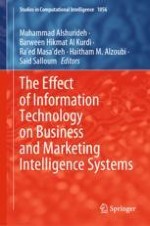2023 | OriginalPaper | Buchkapitel
The Effectiveness of Mobile Phones Applications in Learning English Vocabularies
verfasst von : Ibrahim Fathi Huwari, Saddam Rateb Darawsheh, Anwar Saud Al-Shaar, Hevron Alshurideh
Erschienen in: The Effect of Information Technology on Business and Marketing Intelligence Systems
Aktivieren Sie unsere intelligente Suche, um passende Fachinhalte oder Patente zu finden.
Wählen Sie Textabschnitte aus um mit Künstlicher Intelligenz passenden Patente zu finden. powered by
Markieren Sie Textabschnitte, um KI-gestützt weitere passende Inhalte zu finden. powered by
